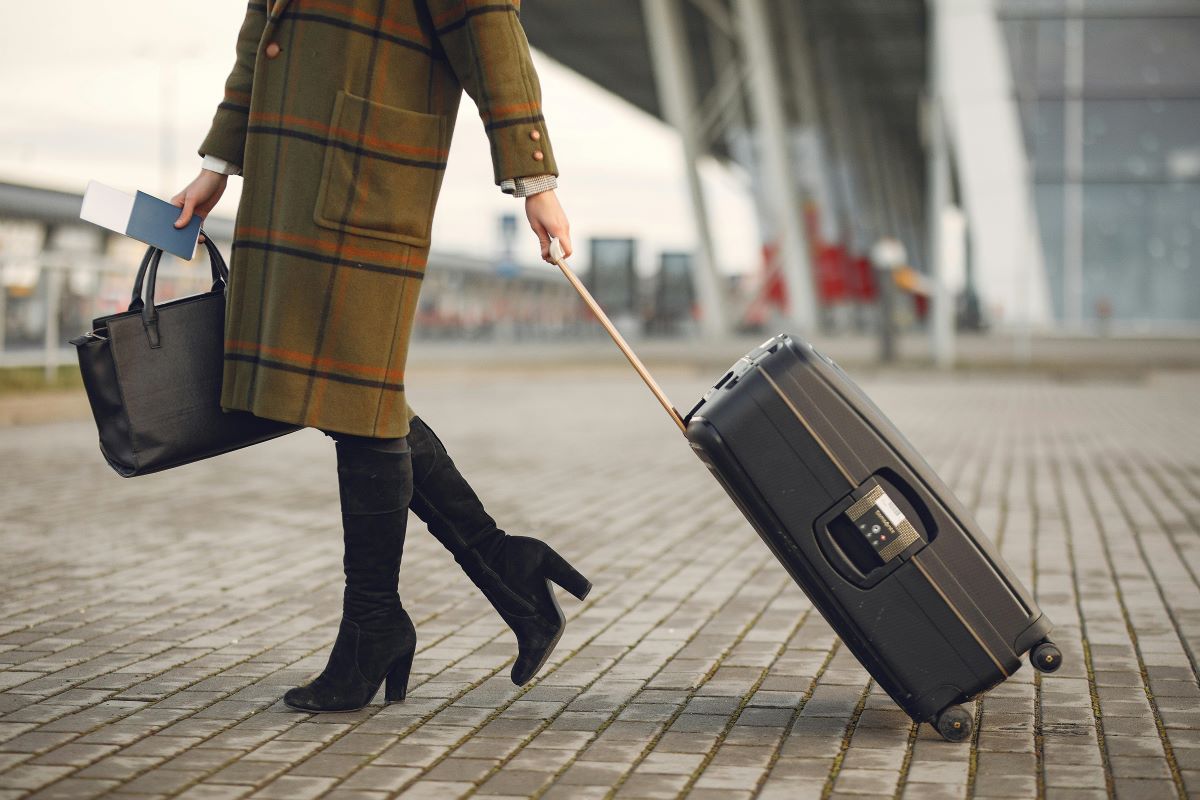Travel Essentials for a Safari in Africa
Going on a safari in Africa is an exciting experience that captivates everyone with its breathtaking scenery, magnificent wildlife, and unforgettable moments. Whether you are a safari novice or a veteran adventurer, it is important to pack smart so that you have everything you need for an effortless and enjoyable safari adventure. In this guide, we will cover everything you need to pack and all the travel essentials for a safari in Africa.
1. Travel Documents and Other Important Items
Before you even start contemplating what to pack, it’s important to first ensure your travel documents are in order. Based on your country of residence and the nation you’re visiting, you may be required to have a passport, visa, and vaccinations.
- Passport: Ensure your passport is valid for at least six months beyond your intended departure date.
- Visa: A visa is needed for some African countries. Check the visa requirements of the country you are going to visit.
- Vaccines: Depending on where you’re going, you might need certain vaccines, like yellow fever, malaria and typhoid. Note: Always consult a healthcare professional long before your trip.
After that, bring a photocopy of your passport, visa, and other important documents. Store them in a different place from the originals.
2. Clothes: Wear Comfortable and Protective Outfits
Choosing the right clothing is critical for a comfortable safari experience. Africa has variable weather patterns, with hot and cold seasons, and you should be ready for both extremes.
- Wear neutral-colored clothes: Lightweight clothes in neutral colors (khaki, beige, and brown) are always better. These are colors that blend in with the surroundings and do not attract insects.
- Light layers: Even though it’s hot in the daytime, temperatures can cool down in the evening, so bring a light jacket or sweater for chillier nights.
- A wide-brimmed hat: A wide-brimmed hat will keep the sun off your head and help you stay pretty cool through the day.
- Comfortable shoes: You’ll also want some good walking shoes or boots for any walking safaris or hikes. Pick shoes that are comfortable breathable, and waterproof if you can.
- Socks and underwear: Pack enough pairs of socks and underwear to get you through your trip, and opt for moisture-wicking material, if possible.
- Rain gear: Depending on the season and area, rain showers may come. Bring a lightweight, packable rain jacket to keep dry during unexpected downpours.
3. Mutual Fund SelectionsFor Several Clear Florescent Guidelines
The sun in Africa can be quite powerful, so it is essential to shield your skin from damaging UV rays.
- Sunscreen: Use a broad-spectrum sunscreen with SPF 30 or higher. Use liberally, especially on exposed areas like your face, neck, and arms. Reapply every two hours, especially if you’re sweating or swimming.
- Sunglasses: Invest in a pair of quality sunglasses capable of protecting your eyes from the bright sunlight and reducing glare while on safari.
- Lip balm with SPF: Protect those lips from the sun with a lip balm offering SPF. It’s easy to forget, but your lips are very vulnerable to becoming chapped and even sunburned.
4. Health and First Aid Kit
Your health takes precedence, so make sure that you can handle the minor scratches or illnesses that can occur on the safari. A basic first aid kit is essential.
- Medication: If you take a prescription medication, bring an adequate supply for the whole trip, plus a copy of your prescription.
- Malaria prevention: If you’ll be visiting areas with high malaria prevalence, talk to your doctor about anti-malarial medication. Carry insect repellent with DEET and malaria prevention tablets if required.
- Insect bite relief: We recommend bringing additional soothing creams or sprays for insect bites! It’s never a bad idea to pack insect repellent to combat mosquitoes or other bugs.
- Basic first aid kit: Bring band-aids, antiseptic wipes, pain relievers, and any over-the-counter medications that may come in handy. Keeping a mini, travel-friendly first aid kit can help save you time in an emergency.
5. Camera and Binoculars
A safari provides a great chance to snap breathtaking wildlife photos so, don’t forget your camera and photography equipment.
- Camera: A decent camera with a zoom lens will allow you to get up-close-and-personal shots of wildlife from afar. If you don’t own a professional camera, your smartphone is capable of taking beautiful photos.
- Binoculars: Binoculars should be packed as they will allow us to spot animals, particularly those who are a good distance from the vehicle. When you take binoculars with you, you will see birds, elephants, lions, and other animals much clearer.
6. Power Bank, Charging Device
Power may be less reliable in many parts of Africa than at home, so preparation is important.
- Power bank: A small power bank can save your life on safari, particularly if you intend to use your phone or camera all day. Whichever way, you will stay charged even if you are in the most remote of places.
- Plug adapters: Research the power outlets and voltage in the country you are visiting. Pack a plug adapter and voltage converter, so you can charge your electronics.
7. Food and Water
Although most safari lodges and camps will provide food and water, it’s always best to take other snacks and extra water along with you.
- Snacks: Bring non-perishable snacks such as energy bars, nuts, and dried fruits for out in the field. Safari days can be long, so it’s important to keep your energy levels up.
- Reusable water bottle: You’ll need to stay hydrated in the African heat, so bring a reusable water bottle that you can fill up when you depart for game drives. Most safari camps offer filtered water, so you just need to fill up your bottle as you go.
8. Money and Currency
While the majority of safari lodges and camps will accept credit cards, it’s prudent to carry some cash for tips, souvenirs, or small purchases.
- Local currency: If you’re going overseas, check the exchange rate for the country you’re visiting before you leave and, ideally, take some local currency with you. It’ll also be good for smaller purchases.
- Credit cards: Most lodges and camps accept credit cards, but always check in advance. Having a mix of cash and cards will help ensure you’re good for anything.
9. Safari Travel Insurance
Travel insurance is always a smart move, and it’s particularly crucial for safaris. Given its remote locations and the nature of the adventure, it is paramount to have insurance that covers medical emergencies, trip cancellations, and personal belongings loss.
10. Extra Essentials
- Headlamp or flashlight: Morning or evening drives on safari are common, so a headlamp or flashlight is beneficial for moving about in the dark.
- Wet wipes and hand sanitizer: These can be useful to have to clean your hands on game drives and between meals.
- Tote or backpack: A small backpack or tote to carry your sunscreen, camera, water, still snacks while on safari.
Conclusion
Planning and packing for an African safari are some of the most important steps to take for this once-in-a-lifetime experience. With the right travel essentials in tow, you are assured a hassle-free and enjoyable experience! You’ll be able to savor all the African wildlife and landscapes have to offer if you pack everything from your passport to sunscreen and comfortable clothing, and health essentials. Pack smart, travel safe, and prepare for the trip of a lifetime!
📞 Call/WhatsApp: +254 748 057 500
📧 Email: info@pleasantadventure.com
🌍 Website: www.pleasantadventure.com
FAQs
1. What clothing should I pack for an African safari?
Pack light, neutral-colored clothing (khaki, green, or beige) to blend with the environment. Avoid bright colors and dark blue/black, as they attract insects.
2. What type of shoes are best for a safari?
Comfortable, closed-toe hiking boots or sturdy sneakers are ideal for game drives and walking safaris. Sandals can be useful at lodges.
3. Do I need any special travel documents for a safari?
Yes! Ensure you have a valid passport, visa, travel insurance, and any required vaccination certificates (e.g., yellow fever for some countries).
4. What safari gear should I bring?
Essential gear includes binoculars, a high-quality camera, a flashlight, power bank, and a reusable water bottle.
5. Do I need malaria medication for an African safari?
Yes, malaria is present in many safari destinations. Consult a doctor for antimalarial medication and use insect repellent.
6. What’s the best way to carry money on safari?
Use a mix of cash (USD or local currency), credit/debit cards, and mobile payments. Some remote lodges may not accept cards, so carry cash.
7. Should I bring a first-aid kit?
Yes! Pack a small first-aid kit with essentials like painkillers, bandages, antiseptic, motion sickness tablets, and any personal medications.
8. Can I use my phone and WiFi on safari?
WiFi is available in most lodges, but cell service can be weak in remote areas. Consider buying a local SIM card for better connectivity.
9. What type of luggage is best for a safari?
Soft-sided duffel bags are recommended for safaris, especially for small-plane flights with strict weight limits (usually 15 kg/33 lbs).
10. What travel insurance do I need for a safari?
Get comprehensive travel insurance that covers medical emergencies, trip cancellations, lost luggage, and evacuation from remote areas.

